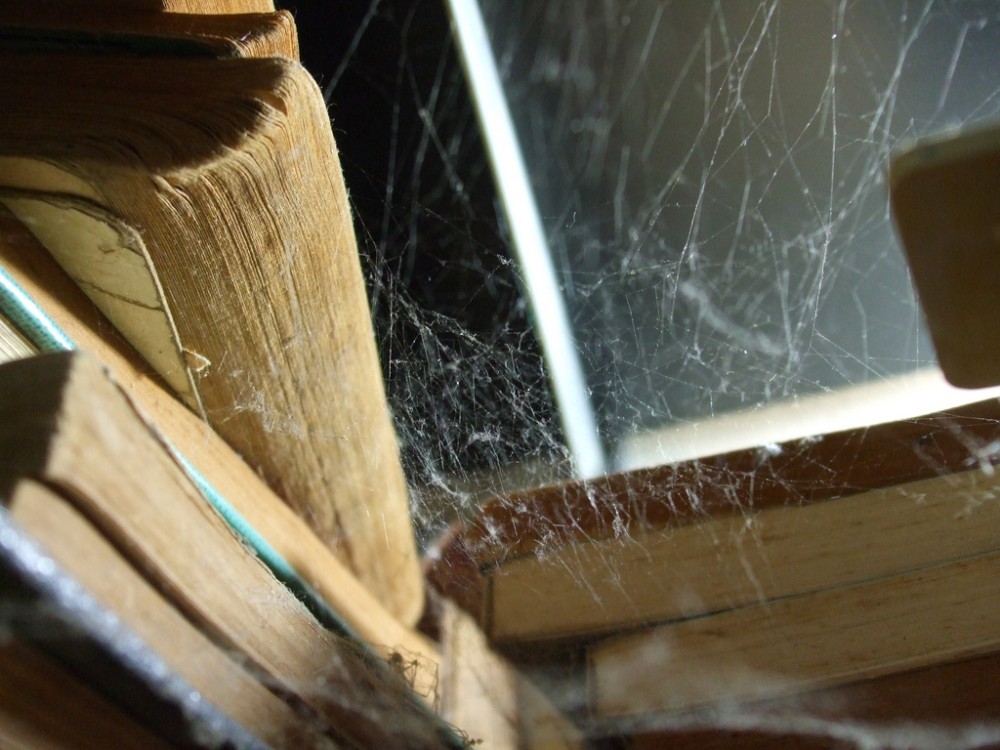What I found when I packed up my office
Some things are worth keeping precisely because they will soon turn to dust.
Last month I moved from a large, dusty office into a smaller one that promises to be friendlier to my sinuses and lungs. The move presented a daunting task: sorting through 25 years of books, papers, and memorabilia. Even with a dust mask on, I had asthmatic chest pains, headaches, and tearing eyes with dark allergic shiners. I looked like a raccoon who has been spending too much time poring through old academic journals.
My subconscious got involved in the project, too. One night I woke up absolutely convinced that there was a five-drawer file cabinet next to my side of the bed. It was growing taller by the minute, like the Christmas tree in The Nutcracker. There never has been a file cabinet in our bedroom—let alone one tall enough to hit the ceiling or wide enough to keep me from rolling off the bed—but this image had come forth from a file cabinet in my own mind, with the sole aim of rebuking me for having collected so much stuff.
I got the message. I set out to perform what organizing guru Marie Kondo calls the “life-changing magic of tidying up.” I dutifully discarded a mountain of articles that had once seemed important to my research, along with some weather-beaten writings of my own: manifestos for liturgical conservation and spiritual renewal; reviews of books by radical theologians whose celebrity days are long past; proposals for books I no longer want to read, let alone write.





